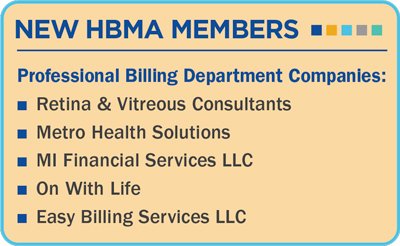In the complex landscape of the United States healthcare system, the importance of compliance and ethics cannot be overstated. With the convergence of regulatory requirements, technological advancements, and the necessity for patient-centered care, healthcare organizations, and revenue cycle management companies in particular, must prioritize these areas to ensure the delivery of safe, effective, and equitable services.
If you are reading any industry newsletter or even a local news source, you cannot help but see articles depicting someone arrested for fraud. The latest example I read about was a cardiologist admitting to fraud and giving up his license for a $1.5 million scheme. In our industry, it is an unfortunate reality that healthcare providers and others through healthcare practices attempt to take short cuts or use government agencies as their personal income source. The need for our industry to uphold our values and be vigilant towards bad actors is ever present.
Understanding Compliance in Healthcare
Compliance refers to adhering to laws, regulations, and policies that govern healthcare practices. Our healthcare system is heavily regulated, with organizations subject to various federal and state laws, including the Health Insurance Portability and Accountability Act (HIPAA), the Affordable Care Act (ACA), and numerous other regulations aimed at protecting patient rights and ensuring quality care. Compliance is essential to avoid legal repercussions and to maintain trust with patients and stakeholders.
Violations of compliance can lead to severe penalties, including hefty fines and the potential for criminal charges against individuals and organizations. For instance, breaches of HIPAA can result in fines reaching millions of dollars. Beyond the legal implications, non-compliance can damage an organization’s reputation, leading to a loss of patients and partnerships. In an era where patient trust is paramount, maintaining compliance is critical for operational stability.
The Role of Ethics in Healthcare
While compliance focuses on adherence to laws, ethics addresses the moral principles that guide decision-making in healthcare. Ethical considerations are crucial in situations where the law may not provide clear guidance. For example, in our industry, we see daily dilemmas related to appropriate coding, sufficient documentation, patient consent, and patient billing for coinsurance and deductibles. There are plenty of examples of clients who would not mind if we look the other way or do not ask the tough questions.
Ethics in healthcare also encompasses the commitment to fairness and justice. Ensuring that all patients receive equitable care, regardless of their socioeconomic status, race, or background, is not just a legal obligation, but a moral imperative.
Interplay Between Compliance and Ethics
The relationship between compliance and ethics in healthcare is intertwined. A strong compliance program establishes the framework within which ethical decisions can be made. Organizations that emphasize both compliance and ethics are better positioned to create a positive culture that encourages transparency, accountability, and continuous improvement. This dual focus can help mitigate risks associated with misconduct, which can have devastating effects on patient care and organizational integrity.

Our History
The Compliance and Ethics Committee has a long history at HBMA since its founding in 1995 as the Ethics and Compliance Committee. That committee was integral to helping the Office of Inspector General (OIG) with its initial draft model compliance program that they finalized in late 1998. For over 15 years, HBMA ran a separate compliance conference that provided tools to build a comprehensive program. Since then, we have seen a tumultuous period for the committee. The last compliance conference did not attract many interested companies. We are now at a critical juncture to determine the best way to assist you with building a comprehensive, manageable compliance program.
I would encourage you to consider joining the Compliance and Ethics Committee. We meet virtually on the first Wednesday of every month. We are a diverse group who enjoy learning and debating aspects of a topic that is so often misunderstood and shortchanged. Do you want to make a lasting impact on this industry? Working together we have the opportunity to build a program that elevates compliance and ethics back to a place of prominence in our industry.
We are working on building a new online compliance program that complements the Healthcare Compliance Pros accreditation program as well as improving communication and engagement with HBMA members from this committee on current compliance and ethics topics, including cybersecurity, due diligence on prospects, and your role in evaluating the impact of AI on your operations and those of your clients.
Please contact me at bobt@mcbcollects.com or 973-320-7399 for more information on joining the Compliance and Ethics Committee.

